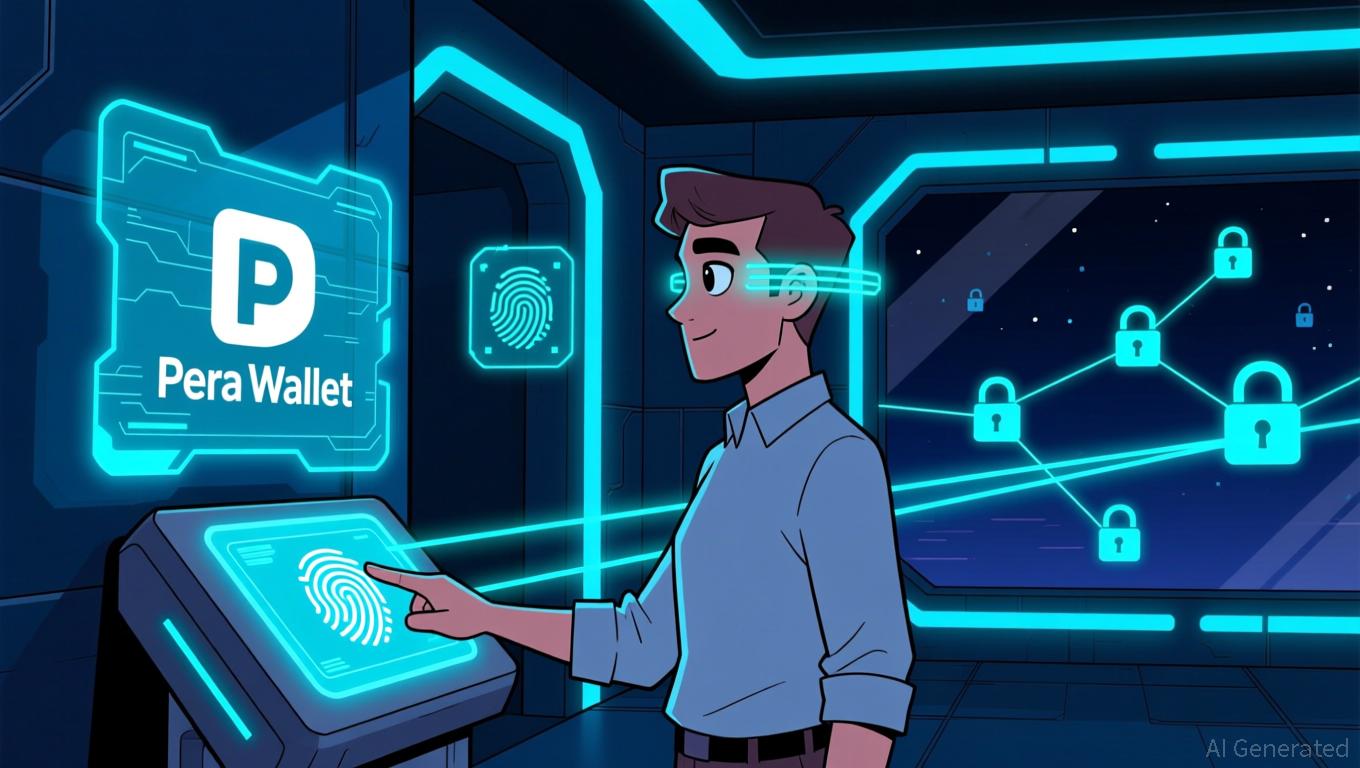Algorand Moves to Passwordless Security to Address Quantum Risks and Meet Regulatory Requirements
- Algorand launches passwordless login via Pera Wallet using FIDO2 standards to combat quantum threats and regulatory demands. - Industry trends show firms like AMI adopting post-quantum cryptography while Prisma AI develops AI-specific security tools. - Ledger explores NY IPO amid rising crypto storage demand, while BIO-key expands passwordless solutions in Middle East/Africa. - NIST/NCSC urge quantum-resistant algorithm migration, positioning passwordless tech as critical for financial/healthcare complia
Algorand, a blockchain network recognized for prioritizing both security and user-friendly design, has rolled out a password-free login option through its Pera Wallet. This enhancement is in line with the industry’s ongoing shift away from conventional passwords toward more advanced authentication solutions, especially as quantum computing and regulatory changes reshape the cybersecurity landscape, according to a
This development mirrors broader trends in both the crypto and cybersecurity industries. For example, AMI has recently adopted post-quantum cryptography (PQC) in its firmware to prepare for potential quantum threats, as covered in the

BIO-key International, a company specializing in identity and access management, has also broadened its presence in the Middle East and Africa by partnering with VaporVM. This collaboration promotes passwordless solutions such as FIDO2-based Passkey:YOU and PIN systems that do not require tokens, as outlined in the
The integration of passwordless login in Pera Wallet supports Algorand’s larger mission to streamline the onboarding process for newcomers while upholding robust security. By eliminating the need for users to remember complicated passwords, the platform seeks to make entry easier for a broader audience. This strategy is similar to that of other companies, such as Phantom Wallet, which has focused on
Regulatory requirements are also driving the adoption of passwordless systems. International bodies like the U.S. National Institute of Standards and Technology (NIST) and the UK’s National Cyber Security Centre (NCSC) have recommended that organizations assess their cryptographic resources and transition to quantum-safe algorithms, as referenced in the
As the sector advances, the integration of AI-powered security, quantum-resistant encryption, and passwordless authentication is set to shape the future of digital infrastructure. Algorand’s recent update, together with innovations from peers and collaborators, marks a maturing market where both security and ease of use are becoming standard expectations.
Disclaimer: The content of this article solely reflects the author's opinion and does not represent the platform in any capacity. This article is not intended to serve as a reference for making investment decisions.
You may also like
Bitcoin Updates: Bitcoin Hash Rate Climbs Despite ETF Withdrawals and Global Tensions
- Bitcoin's hash rate hits 1.19B TH/s amid ETF outflows and geopolitical risks, showing network resilience despite $1.17B in weekly redemptions. - Price rebounds 4.4% to $106,000 driven by retail demand and Senate funding bill progress, though ETF redemptions and OG selling persist as headwinds. - Blockchain innovations like CreditBlockchain's XRP platform and divergent miner profits ($180M vs -$266M Q3) highlight sector fragmentation and growth opportunities. - Regulatory clarity post-government shutdown

Merchants Secure Greater Authority Over Card Acceptance in $38 Billion Visa-Mastercard Agreement, Though Critics Highlight Ongoing Concerns
- Visa and Mastercard reached a $38B settlement with U.S. merchants over swipe fee disputes, ending a 20-year antitrust battle. - The deal reduces interchange fees by 0.1% for five years, caps consumer rates at 1.25%, and grants merchants flexibility to reject high-fee cards. - Critics argue the agreement fails to address systemic industry issues, with merchants warning it preserves payment giants' fee-raising power. - Analysts warn the changes could disrupt rewards ecosystems, while lawmakers push for ref

Firefighters suffered chemical injuries at a construction site operated by Elon Musk’s Boring Company